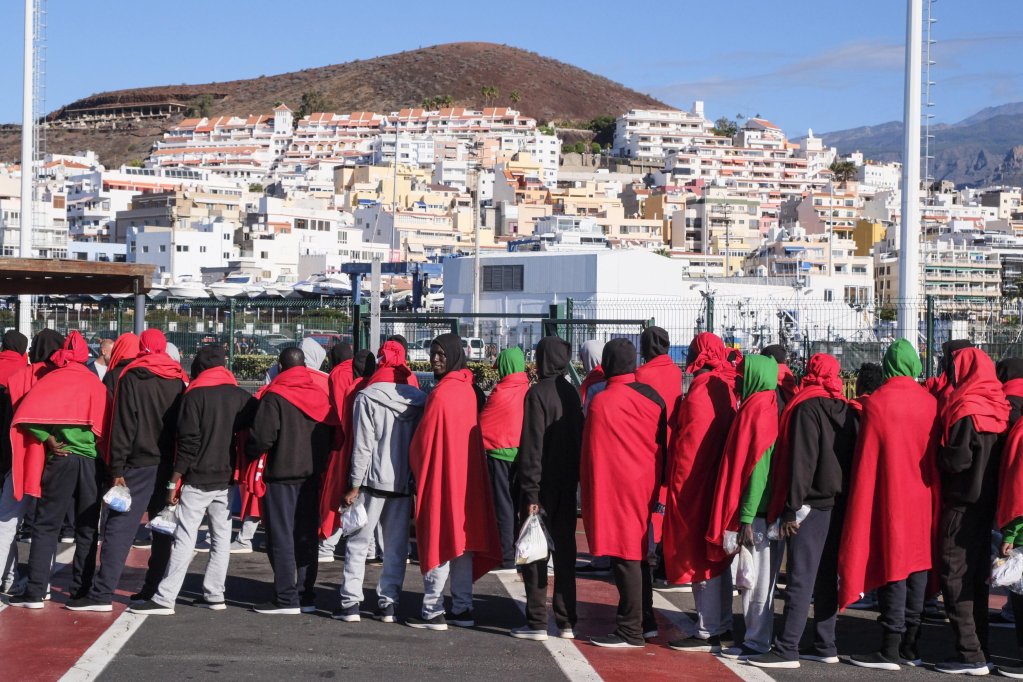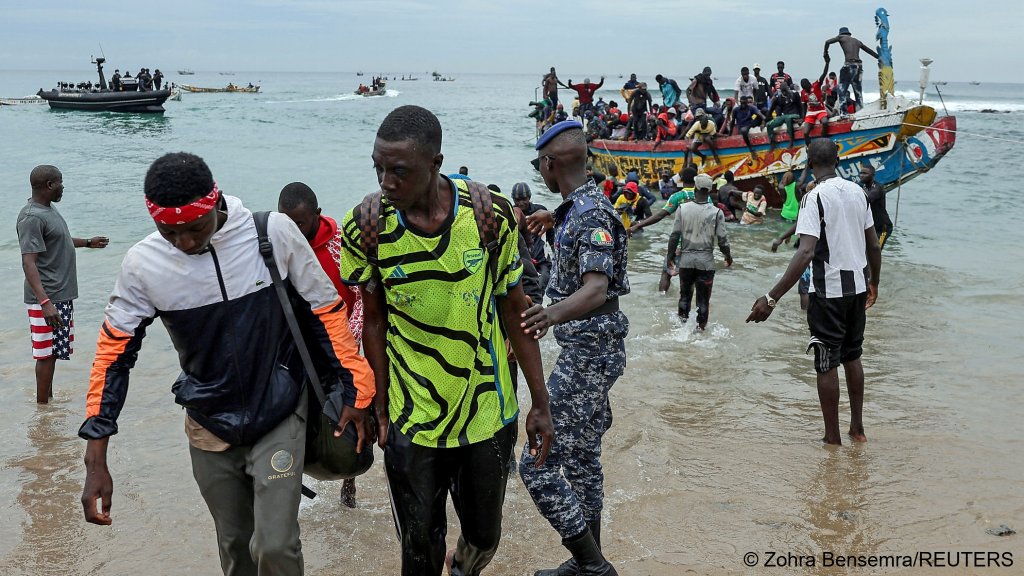Senegalese authorities have announced that on Sunday, a boat carrying more than 120 migrants was intercepted in Atlantic waters. The migrants, whose journey had reportedly originated in "a neighboring country," were hoping to reach Spain's Canary Islands. Meanwhile, two boats managed to reach the Canaries in recent days.
The Senegalese Navy said in a statement on X that the interception took place about 110 kilometers from the coast Dakar on October 12.
The migrants were taken to the Admiral Faye Gassama Naval Base, also situated in Dakar, where they were handed over to authorities for processing.
The navy added that the journey had originated in "a neighboring country," without disclosing the exact country of origin.
The majority of irregular journeys to the Canaries depart from Mauritania, which in recent years has overtaken Morocco and the Western Sahara (which is administered by Morocco) as the main launch point.
Lately, however, the number of boats departing from The Gambia in particular appears to have been rising.
Read AlsoSpain: Government registers drop in Canary Island arrivals
Senegal: Spain's partner in immigration control
Senegal has emerged as one of Spain's key partners, after Mauritania, to help stem the influx of migrants heading to the Atlantic archipelago -- in exchange for cash injections by Madrid.
According to Europa Press, Senegalese authorities intercepted over 7,000 migrants attempting to reach the Canaries last year alone.
Earlier this year, the Senegalese Coast Guard stated that it had already crossed the mark of apprehending over 3,000 individuals attempting the dangerous crossing.

Read AlsoOn the Senegal-Mauritania border, hundreds of migrants are 'in a desperate situation'
More than 430 migrants reach Canaries this week
Meanwhile, a dinghy carrying around 230 migrants, including 13 women and six underage minors, succeeded in reaching the Canaries on October 14, according to reports by the Spanish news agency EFE.
The boat reached the port of La Restinga on the small island of El Hierro after reportedly traveling for eight days in the open sea.
Upon arrival, the Red Cross attended to those needing medical attention, with three of the migrants needing to be taken to hospital.
It is believed that the migrants had departed from The Gambia, and that the group included Gambian, Senegalese, Malian and Guinean nationals.

Another boat had managed to arrive on Tenerife with 206 migrants on October 13; three migrants had to receive medical treatment in hospital after disembarking at the Los Cristianos port in the south of the island.
The Canarias7 news platform quoted emergency services as saying that the boat had departed from Gambia, stopping in Senegal before heading for the Canaries.
The migrants told reporters that they had been journeying in the Atlantic for eight days.
Read AlsoSpain: Over 300 new arrivals over weekend in Canary Islands
Thousands of dead bodies in the Atlantic
The Atlantic route to the Canaries remains one of the deadliest migrant journeys, as strong winds and currents often can be overwhelming to overcrowded, unseaworthy vessels traveling long distances.
According to the International Organization for Migration's (IOM) Missing Migrants Project, at least 2,055 people have died or gone missing while attempting to reach Europe since 2014 on this route; the Spanish migrant NGO Caminando Fronteras however estimates that more than 10,500 people died or disappeared on the Atlantic route to the Canary Islands in 2024 alone.
Last year, close to 47,000 people succeeded in reaching the archipelago in the Atlantic Ocean, according to numbers provided by the Spanish Interior Ministry, though closer cooperation with African partners has meant that those numbers have been declining:
In the first half of 2025, 11,300 people managed to reach the Canary Islands by small boat journeys — roughly 40 percent less than the same period in 2024.
Read AlsoSpain: Multiple arrests in connection with deaths in Atlantic waters last month
with EFE
